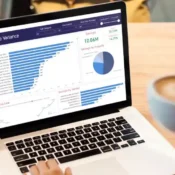
Top Ways CRM Increase Sales and Helps You Close More Deals
In today’s competitive market, businesses need efficient systems to boost sales and close deals faster. Using a top ways CRM Increase Sales can transform your sales department by providing a structured way to manage leads, track interactions, and improve team efficiency. LightCloud ERP offers an integrated solution that streamlines your sales workflow, enhances client engagement, and provides real-time insights.
Implementing a CRM Increase Sales ensures your team spends less time on manual tasks and more time building relationships. With the right system, even complex sales processes become manageable and measurable.
Understanding CRM for Sales
Definition and Purpose
A CRM for Sales Department is software designed to help teams manage customer relationships and sales processes more effectively. It centralizes customer data, tracks interactions, and automates routine tasks. This allows teams to focus on stronger client relationships and higher conversion rates.
Benefits for Sales Teams
CRM software helps sales teams improve lead tracking, monitor pipeline progress, and maintain clear client communication. It reduces manual work, prevents missed opportunities, and allows salespeople to concentrate on closing deals efficiently.
How It Supports Business Growth
By providing insights into customer behavior and sales analytics, a CRM Increase Sales enables data-driven decisions. Businesses can identify trends, optimize strategies, and forecast revenue more accurately, fostering sustainable growth and long-term client loyalty.
Sales Process Automation
Streamlining Lead Management
Automating lead management ensures no potential customer is overlooked. CRM systems assign leads to the right team members, track follow-ups, and send reminders, improving overall efficiency and pipeline organization.
Workflow Optimization
CRM tools automate repetitive tasks such as emails, calls, and record updates. This saves time, reduces errors, and lets teams dedicate more effort to nurturing high-value clients.
Enhanced Collaboration
Team members can easily share customer insights within the CRM Increase Sales. Improved collaboration leads to faster problem-solving, better customer experiences, and stronger alignment with business goals.
Reporting and Tracking
Regular reporting provides transparency into sales activities. Managers can track progress, measure performance, and identify areas needing improvement, keeping strategies aligned with company objectives.
Lead Tracking with CRM
Real-Time Monitoring
CRMs give visibility into every lead's status. Sales managers can monitor activities and intervene when necessary to ensure leads are nurtured, preventing them from falling through the cracks.
Prioritizing High-Value Leads
Analyzing past interactions helps identify leads with the highest potential. Prioritizing these leads increases conversion likelihood and maximizes revenue.
Historical Data Analysis
Access to historical data allows teams to learn from past interactions. Insights from trends and customer preferences help refine future campaigns for better results.
Lead Conversion Metrics
Tracking metrics like response times and conversion rates provides actionable insights. These guide improvements in team performance and sales strategies.
Sales Performance Analytics
Measuring Team Efficiency
CRM dashboards display deal closure rates, sales cycle lengths, and individual contributions. Managers can recognize strengths, address weaknesses, and optimize performance efficiently.
Data-Driven Insights
Analytics offer actionable insights into customer behavior and sales trends. Teams can refine marketing strategies and make informed decisions for future campaigns.
Forecasting and Planning
CRM analytics predict future sales based on trends and pipeline data. Accurate forecasting allows better resource allocation, realistic target setting, and improved revenue planning.
Performance Benchmarking
Comparing team performance over time helps identify best practices and areas needing attention. Benchmarking promotes accountability and motivates teams to reach higher targets.
Improving Customer Engagement
Personalized Communication
CRM tools enable messaging based on client history and preferences. Personalized communication improves satisfaction, builds trust, and encourages repeat business.
Tracking Customer Interactions
All interactions are logged in the CRM Increase Sales, giving a complete customer journey view. Sales teams can anticipate needs and address concerns proactively.
Customer Retention Strategies
Analyzing engagement data helps develop strategies for retaining high-value clients. Personalized offers and attentive service strengthen long-term relationships.
Feedback and Improvement
Collecting and analyzing feedback identifies service gaps. Companies can continuously improve offerings and enhance customer satisfaction.
Advanced Features of CRM
Multi-Channel Integration
CRMs integrate with email, social media, and messaging platforms, letting teams manage communications from a single interface. This increases efficiency and improves response times.
Automation of Recurring Tasks
Tasks like invoicing, follow-ups, and reporting can be automated. Automation reduces manual effort and ensures consistent customer experiences.
Mobile Access
CRM apps provide data access on the go. Sales reps can update records, respond to clients, and monitor performance from anywhere, ensuring no opportunity is missed.
Security and Compliance
CRMs provide secure access and data protection, safeguarding customer information. Compliance with standards builds trust and prevents legal issues.
Ready to boost your sales with LightCloud ERP? Contact info@lightclouderp.com or call +92 3080111822 to schedule a free demo and see how CRM tools can increase your revenue and efficiency.
Choosing the Right CRM
Key Features to Consider
Look for CRM tools offering sales pipeline management, lead tracking, analytics, automation, and mobile access. The right features ensure your system fits business needs and boosts productivity.
Benefits of LightCloud ERP
LightCloud ERP combines CRM with cloud-based order management. Its user-friendly interface, real-time reporting, and secure data handling make it suitable for businesses of all sizes.
Implementation Tips
Proper onboarding and training maximize CRM benefits. Teams should understand features, follow best practices, and consistently update data for accurate insights.
Monitoring Adoption
Tracking how effectively teams use the CRM, Increase Sales identifies training needs and adoption challenges. Continuous monitoring ensures maximum software value.
Conclusion
A CRM to Increase Sales is essential for modern businesses. It streamlines workflows, improves lead management, and provides actionable insights to boost conversions. LightCloud ERP helps your sales team close deals faster, enhance engagement, and drive revenue growth. Consistent use and proper training allow teams to fully leverage CRM tools.
Contact info@lightclouderp.com or call +92 3080111822 to start your free demo and transform your sales operations today.
Frequently Asked Question
What is a CRM to Increase Sales?
It’s a system for managing customer relationships, tracking sales, and optimizing workflows to help teams close more deals effectively.
How does CRM improve sales performance?
By automating processes, tracking leads, and providing analytics, CRMs enhance efficiency and boost conversion rates.
Can small businesses benefit from CRM?
Yes, small teams can streamline operations, track customers, and improve sales outcomes with CRM tools.
What features should I look for in CRM software?
Sales pipeline management, lead tracking, analytics dashboards, automation, and mobile access are essential features.
How does CRM help with customer engagement?
It allows personalized communication, tracks interactions, and provides data to develop retention strategies.
Can CRM integrate with other tools?
Yes, modern CRMs integrate with email, accounting, inventory, and marketing platforms for unified management.
How does CRM assist in sales forecasting?
CRM analytics use historical and current data to predict sales trends, enabling better planning and resource allocation.
Is mobile access important for CRM?
Yes, mobile access ensures sales reps can update records, respond to clients, and track performance from anywhere.





